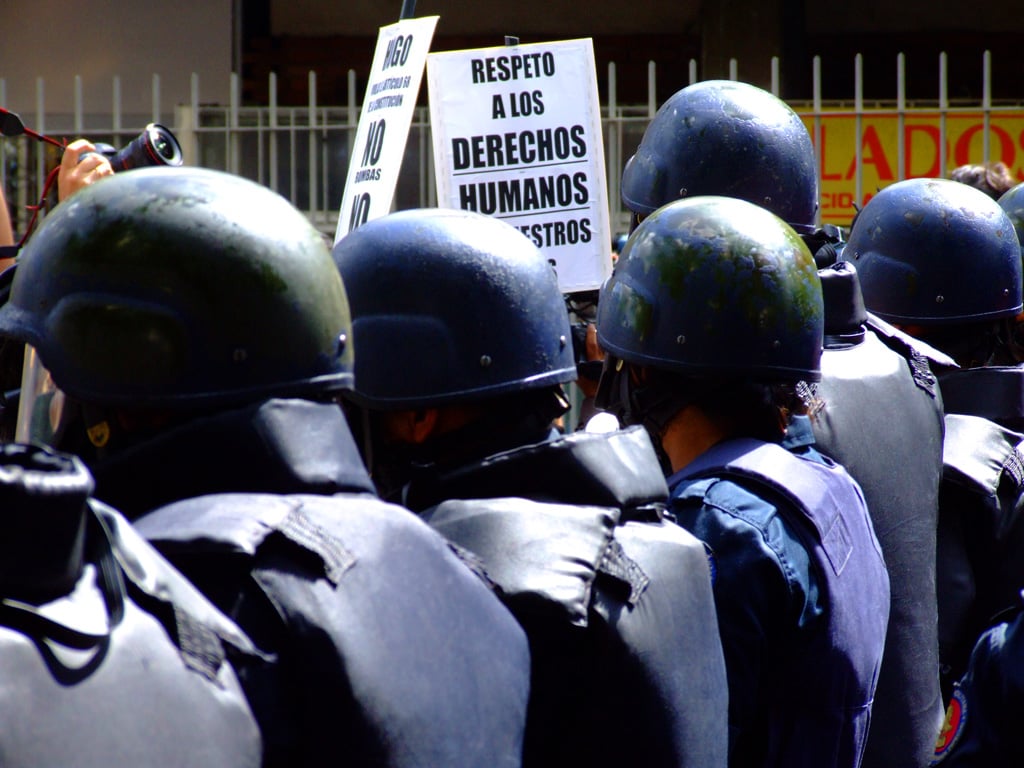In 2016, a 12-year-old boy was reportedly detained and tortured in Giwa barracks in northeastern Nigeria. He ended up nearly paralysed. “We wanted to cite the officers in charge,” said lawyer Chino Edmund Obiagwu. “But we weren’t able to get the information on their names.”
Obiagwu is the director of the Legal Defence and Assistance Project, an organisation representing victims of abuse by the Nigerian security forces. He explained how a new website, Who Was in Command, has made his work a lot easier by publishing the names, ranks, and command responsibilities of security forces in Nigeria, Egypt, and Mexico.
Victims of human rights abuses and their families often don’t know the names of the individual security officers they accuse of violating their rights, but their bosses can be held liable for their actions. However, according to Obiagwu, commanders tend not to stay in the same place for more than six months, which makes it time-intensive to find out who is responsible for the troops’ actions.
“There’s a tug of war between institutions that want to remain permanently obscure, and those people who need to know more about them."
Obiagwu said they can only litigate on the strongest of cases. “There are so many cases, there are so many,” he repeated. Given the amount of work for a small organisation, “sometimes we [have to] drop cases because we don’t know who is responsible.”
Having all this information gathered from public sources on one website and made into a reference database has revolutionised his work. Now, “if I want to know the name of the person who is in charge… it can easily be gotten from that website,” he said.
Another user is Aster van Kregten, Amnesty International's senior research advisor for Nigeria. She said it’s especially useful for tracking specific Nigerian police officers, because the police often move officers from one state to another when there’s a complaint against them.
Sometimes, she said, her group will only investigate one specific allegation, but not necessarily look at the “track record” of the officer. With the new site, they can look back at each officer’s history and follow links to public allegations against each individual.
“The only risk is how it’s verified. I can imagine that will be one of the big objections from the military or the police,” said van Kregten. “It’s not the same as the military saying that someone is in charge… but on the website you can check what the sources are… it gives you a very good indication, and then you need to follow up on that.”
The project was initiated by Tony Wilson, director of the Security Force Monitor, a separate venture hosted at Columbia Law School. He explained that he got the idea for this latest project while researching police accountability in Bahrain around 2013.
The Leahy laws, which are supposed to prohibit the United States from providing training or assistance to security forces that have violated human rights with impunity, gave Wilson further motivation. “The main challenge in our perspective is that groups… can’t make specific allegations, and thus the law can’t be implemented,” he explained. Because of that, he fears that some security forces accused of abuses might still get funding from the United States.
Wilson and his colleagues picked countries where there were long-standing concerns with security forces, and where they could partner with solid organisations working on this issue. They hope to extend it to a total of 20 countries over the next three years.
Could this sort of database present additional risks to the security of military or police personnel, or to members of the public? Wilson doesn’t think so because the information is already out there, coming from official announcements by the army and other organisations. “It’s also not like we’re live-tweeting movements of troops,” he said, adding, “there’s always going to be a lag [to the information they are collating].”
Wilson’s colleague, Tom Longley, pointed out what he referred to as “a bias in favour of secrecy” when it comes to working on national security issues. “There’s a tug of war between institutions that want to remain permanently obscure, and those people who need to know more about them so that they… uphold the standards of human rights,” he said.
Amnesty researcher van Kregten hopes, one day at least, security forces might contribute the information freely themselves. “That,” she said, “would be a real step in the direction of transparency.” The Nigerian army didn’t respond to IRIN’s request for comments.
ef/bp/ag/js






